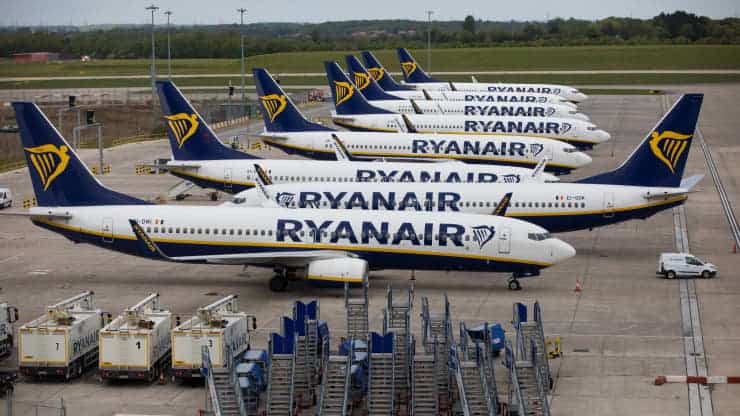LONDON — Ryanair has reported a “strong snap back” in bookings in recent weeks, but said that business continues to be challenging.
The airline reported a full-year net loss of 815 million euros ($989 million) on Monday as Covid-19 restrictions pushed its traffic levels down 81%. Analysts had forecast a net loss of 933 million euros for the 12 months ending in March, according to Refinitiv.
Speaking to CNBC on Monday, Ryanair’s CEO Michael O’Leary said it was a “very difficult year,” but that the company was “looking forward with tremendous optimism.”
“In the first week of April, we took just under half a million bookings. Six weeks later, last week, we took 1.5 million bookings. So we are seeing a very strong snap back in bookings; travel beginning to start from June, July, August,” O’Leary said.
“I think if these trends continue we will be looking reasonably optimistic towards a very strong second quarter of traffic recovery.”
Regardless of the recent surge, Ryanair only expects to come close to breakeven in the 12 months to March 2022.
“FY22 (full fiscal year 2022) continues to be challenging, with uncertainty around when and where Covid lockdowns and travel restrictions will be eased,” it said in a release Monday.
Ryanair expects traffic in the year to March 2022 to be at the lower end of its range of between 80 million and 120 million passengers. In the year to March 2021, the airline reported 27.5 million customers.
Price pressure
Despite vaccinations gathering pace and European governments starting to welcome tourists again, Ryanair doesn’t expect prices to jump in the short-term. In fact, O’Leary told CNBC there is “huge value” for British families looking to holiday in Europe this summer.
However, he did warn that there could be some price pressure in late 2021 and into the summer of 2022.
“We should be careful though, out into the winter of 21 and certainly into the summer 22, because as Europe recovers from Covid … there is no doubt in mind that there will be about 20% less capacity out there,” O’Leary told CNBC’s Squawk Box Europe.

